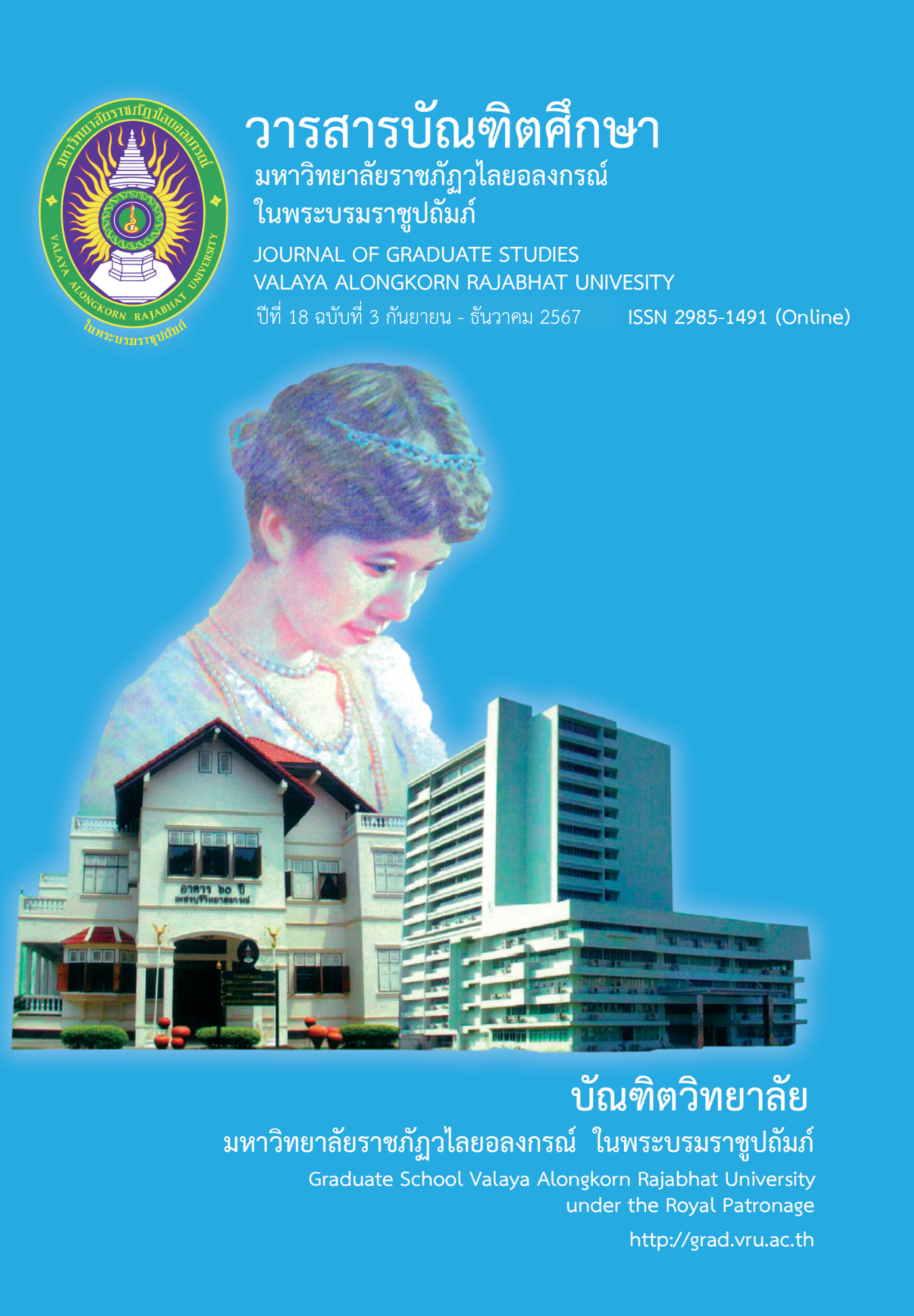GUIDELINES OF KNOWLEDGE MANAGEMENT WISDOM HERBAL MEDICINES UTILIZATION IN COMMUNITY THARUA SUBDISTRICT KOKPHOE DISTRICT, PATTANI PROVINCE
Main Article Content
Abstract
The objectives of this research were to 1) study the knowledge and wisdom of medicinal plants utilization, and 2) study the guidelines of knowledge management wisdom herbal medicines utilization in community Tharua Subdistrict, Kophoe District, Pattani Province. The researchers employed a qualitative approach, ethnographic studies, collecting data from related documents, focus group and in-depth interviewed from 8 key informants, analyzing by content analysis.
The result revealed that: 1) knowledge and wisdom of medicinal plants utilization in community Tharua Subdistrict, Kophoe District, Pattani Province. Have the utilization herbal medicines utilization consist of (1) utilization for treatment of disease, (2) utilization for cooking. And 2) guidelines of knowledge management wisdom herbal medicines utilization in community Tharua Subdistrict, Kophoe District, Pattani Province. can be classified in 5 steps: (1) knowledge identification, (2) knowledge acquisition Tharua Subdistrict, Kophoe District, Pattani Province, (3) knowledge sharing, (4) knowledge organization, and (5) knowledge transfer.
Article Details

This work is licensed under a Creative Commons Attribution-NonCommercial-NoDerivatives 4.0 International License.
บทความทุกเรื่องได้รับการตรวจความถูกต้องทางวิชาการโดยผู้ทรงคุณวุฒิ ทรรศนะและข้อคิดเห็นในบทความ Journal of Global of Perspectives in Humanities and Social Sciences (J-GPHSS) มิใช่เป็นทรรศนะและความคิดของผู้จัดทำจึงมิใช่ความรับผิดชอบของบัณฑิตวิทยาลัย มหาวิทยาลัยราชภัฏวไลยอลงกรณ์ ในพระบรมราชูปถัมภ์ กองบรรณาธิการไม่สงวนสิทธิ์การคัดลอก แต่ให้อ้างอิงแหล่งที่มา
References
Buaphuen, P., Boonkummuang, N., Sirikitsithian, C. & Mankhong, G. (2022). kānsưksā phūmpanyā læ kānchai prayōt čhāk phư̄t samunphrai thō̜ngthin khao krōk plākang čhangwat Kamphǣng Phet [Study of wisdom and utilization of local Herbal in the Khao Krogplakaung area, Kamphaeng Phet Province]. Phikun Journal. 20(1), 349-363.
Creswell, J. W. (2013). Qualitative inquiry and research design: choosing among five traditions. Thousand Oaks: SAGE Publications, Inc.
Dalkir, K. (2005). Knowledge management in theory and practice. Burlington, MA: Elsevier Butterworth-Heinemann.
Jaitia, S. & Chiangmai, N. (2017). patčhai thamnāi kānchai prayōt phư̄t samunphrai phư̄nbān khō̜ng prachāchon lumnam lī čhangwat Lamphūn [Factors predicting the use of local medicinal plants by the people of the Li River Basin]. Ratchapruek Journal. 15(3), 1-78.
Keyser, R. L. (2004). Assessing the relationship between knowledge management and plant performance at the Tennessee valley authority. Ph.D. dissertation, The University of Alabama.
Lamaijin, Y. (2007). khwāmlāklāi khō̜ng phư̄t samunphrai læ kānchai prayōt yāng yangyư̄n tām phūmpanyā thō̜ngthin nai čhangwat ʻUbon Rātchathānī
[Diversity of medicinal plants and their sustainable use according to local wisdom in Ubon Ratchathani Province]. Ubon Ratchathani Rajabhat University.
Laudon, K. C. & Laudon, J. P. (2002). Management information systems: managing the digital firm. 7th ed. Upper Saddle River, N.J: Prentice Hall.
Miles, M. B. & Huberman, A. M. (1994). Qualitative data analysis. An Expanded Sourcebook (2nd ed.). Thousand Oaks, CA: Sage.
Mertins, K., Heisig, P. & Vorbeck, J. (2003). Knowledge management: concepts and best practices. 2nd ed. New York: Springer.
PraDhampidok, P. (2006). kānphatthanā thī yangyư̄n [Sustainable development]. 10th ed. Bangkok: Komol Kiamthong Foundation.
Ratchapolsit, A., Dhammasaccakarn, W., & Shoteshoung, P. (2020). khāolām nō̜ng mon ʻongkhwāmrū phūmpanyā læ rūpbǣp kānčhatkān khwāmrū phư̄a kānphatthanā chumchon thō̜ngthin Thai yāng yangyư̄n [“Bamboo Rice Nongmon” knowledge, wisdom and knowledge management model for sutainable development of local Thai communities]. Udon Thani Rajabhat University Journal of Humanities and Social Science. 9(2), 51-66.
Somakasetrin, C. (2008). kānčhatkān phūmpanyā thō̜ngthin sī sa kē sō̜ phư̄a kān khǣng khan yāng yangyư̄n [Management of sisaket local wisdom for sustainable competition. Research report]. Bangkok: National Research Council of Thailand.
Tangthong, C. (2007). phư̄t samunphrai nai witthayā khē tō̜bā nayāng nō̜i [Medicinal plants in Ban Yang Noi Campus]. Master's Thesis Biology major Ubon Ratchathani University.
Thipsurat, P. (2016). kānsưksā phư̄t samunphrai thō̜ngthin læ phūmpanyā dān kānchai phư̄t samunphrai kō̜ranī sưksā : ʻutthayān hǣng chāt kǣ ngok ru ngō̜ čhangwat Surāt Thānī [Study of local medicinal plants and wisdom regarding the use of medicinal plants. Case study: Kaeng Krung National Park. Surat Thani Province]. Master of Science Department of Environmental Management. Prince of Songkla University.
Thongkamkaew, S. (2017). kānsamrūat phư̄t samunphrai læ kānchai prayōt nai phư̄nthī tambon bā nok rāng ʻAmphœ̄ Mư̄ang čhangwat Phitsanulōk
[Survey of medicinal plants and their uses in the area of Ban Krang Subdistrict, Mueang District, Phitsanulok Province]. Faculty of Science and Technology. Pibulsongkram University.
Tashakkori, A. & Teddlie, C. (1998). Mixed methodology: combining qualitative and quantitative approaches. Thousand Oak, London: SAGE.
Tiwana, A. (2003). The knowledge management toolkit: practical techniques for building a knowledge management system. Atlanta: Prentice Hall housand Oak, London: SAGE.
Yuraprathom, A., Kittisuntharakul, C., Banchawachirachai, W. & Wittayathaworn, S. (2014). khai khwāmmāi kānphatthanā yāng yangyư̄n [Unraveling the meaning of sustainable development]. Bangkok: Center for Social Responsibility Development Stock Exchange of Thailand.
Wannakrairoj, S. et al. (2016). theknik kān pho̜ lī yong nư̄ayư̄a phư̄t [Plant tissue culture techniques]. Horticultural Journal. 16(2), 1-2.


